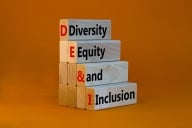You have /5 articles left.
Sign up for a free account or log in.
FRANCE AND "PIRACY"
“We have to take a holistic approach,” she said. “Website blocking and alert systems are just two tools.” So says Frances Moore, chief executive of the International Federation of the Phonographic Industry, a trade group, involved in the French two-strike rule for copyright infringement that resulted in interrupted Internet access. Indeed. Unpopular and expensive, this rule is about to be abandoned by the French government on the principled basis that turning off one's access is compared to turning off "water." While content owners, more controlling in the European Union than in the United States (if you can believe it!), may be putting the best spin on a failed experiment, they may want to walk the talk: consider copyright reform that balances innovation with incentive as part of their "holistic approach." Honey over vinegar, please.
DOES THE INTERNET HAVE EMOTIONS?
"On a recent family outing, my mother and sister got into a shouting match. But they weren’t mad at each other — they were yelling at the iPhone’s turn-by-turn navigation system. I interrupted to say that the phone didn’t understand — or care — that they were upset. “Honey, we know,” my mom replied. 'But it should!' "
The author's family are neither the first nor will they be the last to yell at the navigation lady. Years ago I howled at the one who sent me in the wrong direction with a rental car in Colorado. A half-hour ago, my son and I simultaneously mimicked the judge in the movie "My Cousin Vinny," when the lady told us four times in about as many seconds to "take a right on Saratoga St." as we drove around Cupertino. "I think I got the point." To which we looked at each other and immediately said, "I don't think you do!" (It's our family's version of "The Rocky Horror Picture Show" -- we know almost the entire script of this movie by heart.) Can't help but reiterate a thought I had a couple years ago about what is so magnetic about the Internet: its transfigurative qualities. Not transformational, although it is that too, but how it allows us to see things about ourselves that might by habit or psychology otherwise be unnoticed or repressed. Our lack of patience with the navigation lady and tangent into "My Cousin Vinny" resulted in a conversation about how we all take after my mother, who was notoriously impatient. "If she were here, Nikko, and had to listen to the navigation lady," I reported, "she would have thrown that phone out the window long ago." Technology has emotions insofar as it reflects and refracts our own.
ASSANGE ON 'THE NEW DIGITAL AGE'
I have mixed thoughts and feelings about Julian Assange. A part of me lauds his outrageous courage while another part of me recoils at his recklessness, unbounded ego and purported lack of hygiene. No matter what your thoughts or feelings about him, I do recommend reading his review of The New Digital Age in the NYT. Widely reviewed, this book is something of a barometer of what people think about the Internet generally and Google in particular. Some extol the innovation, imagination and pure wonder of technology; some emphasize the narrow, juvenile naïveté with which the authors, Eric Schmidt and Jared Cohen, view their highly remunerative, engineered world. As usual, Assange takes no prisoners. He strips them of illusions to expose the power relationships built into every piece of algorithmic code. If you want the authors' sides of the story, and have more patience than Nikko and me to put up with the slow thinking/speaking NYT interviewer, see them respond to questions.






